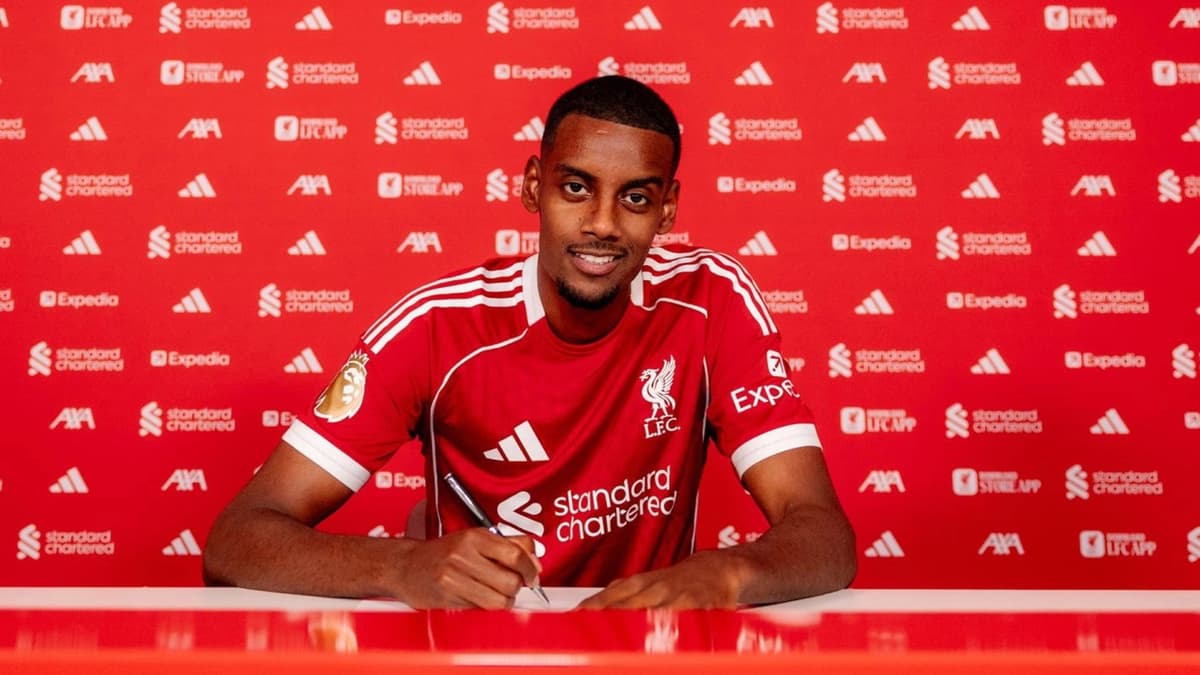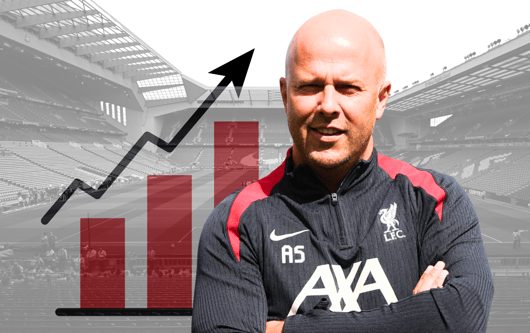-
News
- 5 hours ago
Henry Winter: The price of everything - should all players have a release clause?

The Premier League is an incredibly sophisticated business, but it needs to get up to speed with the need for release or buy-out clauses in players' contracts. In La Liga, such clauses are mandatory under Spanish employment laws and prevent sagas such as the Alexander Isak story that dominated the pre-season narrative in England.
For Liverpool, Isak was the most-coveted centre-forward in the summer 2025 transfer window. For Newcastle, Isak was a rebel without a clause.
There has, so far, been little desire for such clauses in English football.
Pity. They would simplify and speed up the often wearisome protracted transfer. They would prevent low-ball offers. Basically, stump up or stomp off.
A cynic would suggest that the unwillingness to embrace more clauses is because transfer sagas all add more unpredictable and lengthy new storylines to the Premier League soap opera. The Isak saga almost became a cottage industry.
The media loved it. They gorged on the briefings. They had back-pages adorned with changing headlines:
"Isak stays", "Isak goes", "Geordie Joy", "Geordie Despair", "Fog on the Tyne" and "Auf Wiedersehen Pest". Readers devoured it.
Columns were filled, rolling news raced across the bottom of screens, phone-ins steamed with angry callers and studios teemed with pundits pontificating. Social media unrolled threads the length of the Bayeux Tapestry.
Much of the Premier League is all about "The Show", the intrigue, especially around the money and players' fees and wages, as well as the compelling drama on the pitch.
Agents of Premier League-based players would largely resist clauses that streamline deal-making. The more complicated the negotiations, the more involved the agent is.
The clauses differ slightly.
"Release clauses" simply serve to trigger talks, allowing the player to have conversations with a suitor. They are liked by players who don't see their current club as their final destination and particularly want an achievable fee to facilitate a move; negotiations for the original deal will factor this in.
"Buy-out clauses", more prevalent in Spain, see a figure that the player must meet in buying out his contract. The Spanish have this wonderful system where the player effectively pays his buy-out fee to La Liga, conjuring up the image of sought after stars pushing wheelbarrows full of euros into the league's offices off Avenida de America in Madrid.
Obviously, the buying club transfers it to the player first. Such clauses make the transfer system more grown-up and transparent. They lessen the need for tapping up.
They promote sound business practice Look at the situation in England wher buying clubs push for transfers where they pay in instalments. That may hel their immediate position, deferring payment, but encourages some live-for-now overspending.
Manchester United negotiated with Brentford over Bryan Mbeumo, eventually agreeing on a £65 million fee, plus £6m in add-ons, for the attacker. United persuaded Brentford to accept payment in four instalments That makes good, short-term PSR sense but does rather postpone problems. United's most recent quarterly accounts revealed they owed £175.5m in remaining transfer payments before March 31, 2026. A day of reckoning is coming.

There are exceptions. United did a deal with Wolves to spread the £62.5m cost for Matheus Cunha's release clause in three instalments over two years.
Clubs can offer above the clause too, as Arsenal did to Real Sociedad to sign Martin Zubimendi. The silky Spain midfielder's buy-out clause was £51 m. With La Real's willing agreement, Arsenal paid £60m so they could spread the payment.
Some of the need for buy-out clauses has been accelerated by the financial might of Saudi Pro League clubs or clubs funded by wealthy Arab states. Barcelona thought they were unlikely to lose Neymar given his €222m buy-out clause. But Qatari-backed PSG paid it in 2017. That sent clauses hurtling upwards. Vinicius Junior, Kylian Mbappe, Jude Bellingham and Trent Alexander-Arnold all have €1 bn exit clauses at Real Madrid. Pedri and Lamine Yamal have similar at Barca.
That would ward off the vultures but, in reality, negotiations would still take place for much lower. Most clauses are set at more reasonable rates.
Release clauses can change. Nico Williams' exit fee was €58m when Barcelona tried to sign him earlier this summer. The winger's agent must have been delighted. He was in a win-win situation. Either his client moved to Barcelona or, as transpired, Athletic responded, awarding Williams a new, improved ten-year contract with the exit fee increased to €90m.
If that is beyond Barca's means, given their financial issues, it certainly wouldn't dissuade Premier League clubs next summer, especially if Williams enjoys a good World Cup.
It would certainly be a quick transfer, far faster than the slow-moving Premier League system.


















